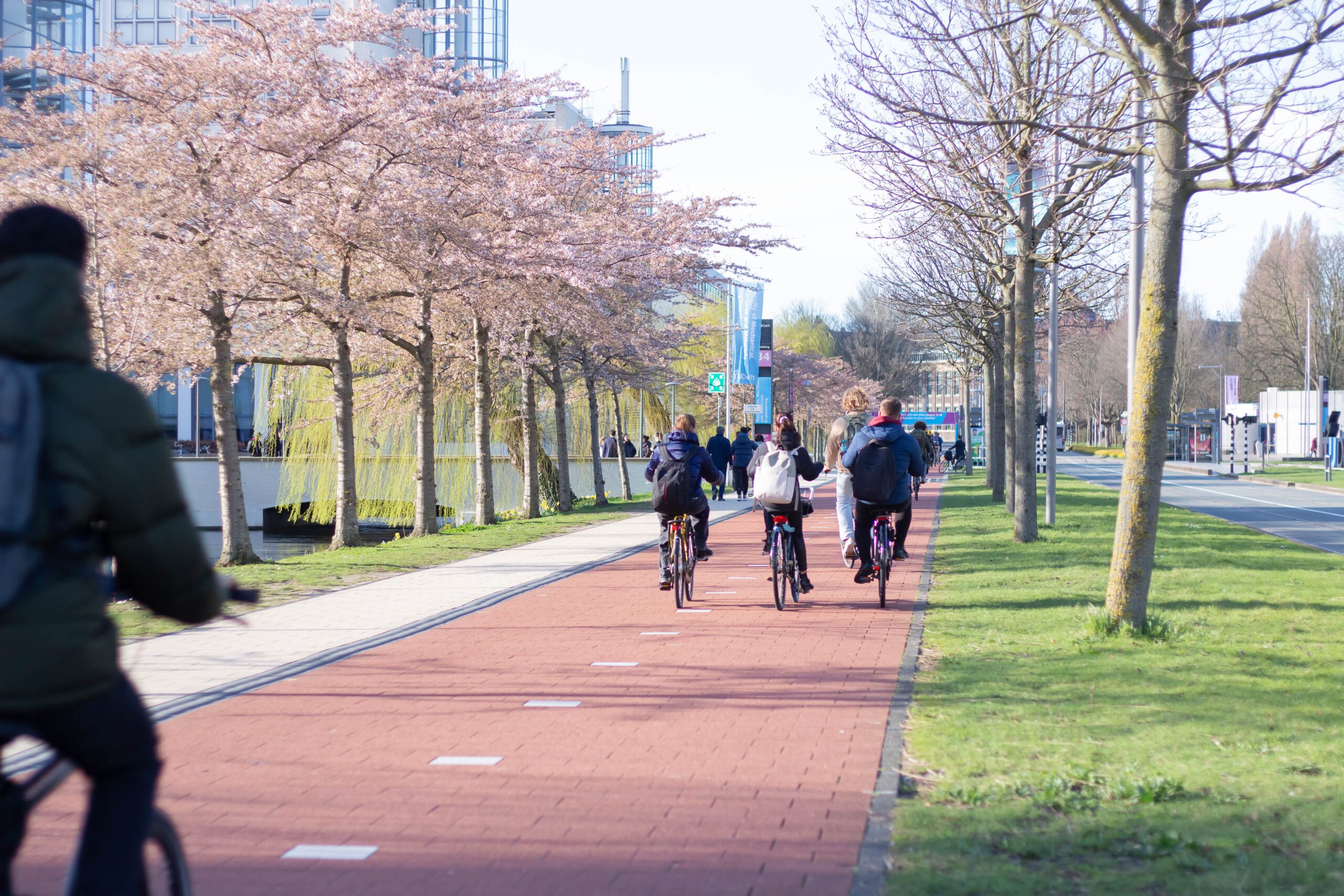After months of consultation meetings and preparation, the TU Delft Integrity and Social Safety hotline if finally open. You can file a report, anonymously if you wish, in various ways – by app, telephone, email or post.
(Photo: Justyna Botor)
A telephone number, a postal address, an email address and an app: the Integrity and Social Safety hotline was opened on Thursday 3 April and can be reached in different ways. Reports can also be made anonymously. All the information about the hotline and other helplines are on a special website.
It also has a support guide for people who have experienced or are experiencing transgressive behaviour at TU Delft, or believe that integrity has been violated or that abuse has occurred in their study or working environment. The guide should help them see who they can best approach.
The preferred path is to first raise the issue in your surroundings
Because it is not that the hotline should necessarily be the first point of contact for everyone. It is part – thus not a replacement – of the existing integrity system consisting of confidential advisors, ombudspeople, complaints committees and so on.
So before they approach them, people are advised to see if there is a chance to discuss the issue in their surroundings. The guide suggests first approaching a manager, supervisor, academic counsellor or confidential advisor. In an information gathering discussion with Delta, Olivier Sueur, the Manager of the Integrity Office, adds that first trying to find a solution locally is always the preferred option, as long as this is possible. “After all, going to the reporting point is a form of escalation.”
Employees, students and others who do approach the hotline will first get an answer from one of the four integrity advisors at the front office.
Overtime and coordination
They are in part the same employees who have done much overtime over the last weeks and months to get the point of contact off the ground. While the original plan was for it to open on 1 October 2024, time was needed for consultation and coordination with representation bodies, trade unions, confidential advisors and so on.
At the same time, a lot of other work needed to be done too. This included defining procedures; writing a confidentiality agreement for the hotline staff members; designing the reporting app; furnishing a physical space for intake sessions; creating a so-called clarifying table with experts; putting together the guide; and, handling reports from people who could not wait until the official point of contact was open.
What happens when you file a report?
What does the point of contact do? This is described in the procedure that the Executive Board issued in February.
When the integrity advisors at the front office receive a report, they can do different things. For example, they can refer the person to a confidential advisor or another helpline. This is done with their help, so is called ‘warm’.
If the point of contact needs to help the reporting person itself, they will be assigned a case manager. The case manager will arrange an intake meeting. This can be in a special space on the 12th floor of Electrical Engineering, Mathematics and Computer Science, but could also be somewhere else on or outside the campus. The process is explicitly that every step is done in consultation with the person in question.
After the intake meeting, one possible next step is a referral to the back office, or the ‘clarifying table’. The standard is for three experts from the Legal Affairs, Safety and Security, and the Integrity Office departments to be present. If requested, other expertise can also be sought. The clarifying table gives advice on following up. Depending on the case and the extent of the impact, this could be taking up the case with a dean or the Executive Board.
A better picture of what is going on
The basic principle of the point of contact, the TU Delft news item states, is that reports should not be put on hold but the appropriate follow up should be found. “This requires constant customisation, diligence and expertise.”
Sueur says that the reporting point will also give TU Delft a better picture of what is going on. “This is contained in the annual reports of the confidential advisors, for example, but the reporting point will give a continuous centralised idea.” The question of course still remains how many people will actually lodge reports. Sueur cannot say yet.
- For more information about the point of contact, see the website. It also lists all the contact options.
- Read more about social safety in our dossier.
Do you have a question or comment about this article?
s.m.bonger@tudelft.nl


Comments are closed.